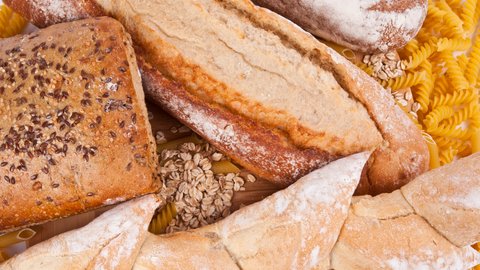What is Fibre?
Fibre is a nutrient many of us know about, but it can be difficult to know if we’re getting enough and how to include it in our diets. Fibre plays a crucial role in digestive health, and high fibre foods have many benefits for both adults and children. In adulthood, there is strong evidence that eating plenty of fibre is associated with lower risk of heart disease, stroke, type 2 diabetes and bowel cancer. Fibre-rich foods also make adults and children feel fuller, whilst aiding regular bowel movements and regulating blood sugar levels.
Is it okay for my child to have fibre?
There is no need for babies, toddlers, or young children to completely avoid fibre in their diets. Little ones get the majority of their fibre from consuming fruits, veg and carbohydrates. Whilst it can be tempting to boost meals with additional fibre sources, such as flaxseeds, it’s important to be mindful that children under age 2 don’t need additional sources of fibre at this age.

Whilst fibre is a key element of your child’s diet, it’s important to note that due to having much smaller stomachs, too much fibre can fill up little tummies quickly. When their tummies fill up too quickly, it can mean your little one doesn’t try as wide a variety of foods, which is an important aspect of their palate and oral health development. It can also mean food and nutrient intake from other sources may be reduced which can lead to deficiencies.
How much fibre does your child need?
In general, the UK population isn’t consuming the recommended amount of dietary fibre and should look at ways to increase intake.
For children aged 2 to 5 years old the NHS recommends that at least 15g of fibre is consumed each day. Encouraging young children to eat foods which are a source of fibre helps to ensure better digestion, avoid constipation, and could set them up for better health outcomes later in life. There are currently no recommendations which indicate how many grams of fibre children under the age of 2 should consume in their diets. Fibre remains an important part of building a balanced plate for little ones, so it’s important to focus on providing them with a variety of fruit, vegetables and carbohydrates alongside meals.

The NHS suggests that for children under the age of 2 years old, “it’s not a good idea to only give wholegrain starchy foods”. Whilst babies and toddlers of this age can consume wholegrain foods, such as wholemeal bread, pasta, brown rice, and other grains like quinoa, it’s important to offer a wide variety of foods. Including both white and wholegrain varieties helps to make sure that your little one is getting what they need from a nutrition perspective.
To help encourage healthy, positive relationships and attitudes towards foods it’s important that we don’t demonise white carbohydrates, such as white pasta, rice, or breads. It’s totally okay for your little ones to include these foods in their diets. Once they are over the age of two years old, you can then start to build more fibrous and wholegrain foods into your child’s diet. As their tummies grow and their digestive system develops, they can tolerate higher fibre intake.

What foods contain fibre?
To help increase the amount of fibre your child has in their diet, make sure to include a variety of foods. Below are some examples of foods that are high in fibre:
-
Fruits & vegetables, especially when the skin is left on. Make sure to soften any fruits and veg when keeping the skin on to make it easier for your baby to eat. These also contain lots of essential vitamins and minerals that are important in your little one’s growth and development.
-
Pulses, such as lentils, beans, and chickpeas. These are great for adding into purées or sauces, and contain essential nutrients such as protein and iron too.
-
Wholegrains, like brown bread, pasta, and rice, and quinoa.
-
Ground nuts and seeds. These help to provide your child with healthy fats and energy to keep them fuelled when exploring throughout the day. Whole nuts and seeds should not be given to children under the age of 5 years old as this is a choking hazard!
Key tips to remember:
-
Fibre is an important part of your little ones diet and including it does have many benefits – you can enhance their intake by adding fruits, veggies and carbohydrates
-
Smaller tummies mean babies don’t need as much fibre as you might think – balance wholemeal options with white varieties
-
Variety is key! Emerging research indicates variety is supportive of proper gut health, and offering your little one lots of flavours and textures to explore may help them in years to come
If your child struggles with gut health concerns, such as constipation, bloating, or just general discomfort, then it’s always best to seek help from a specialist paediatric dietitian and a GP.
Sources: